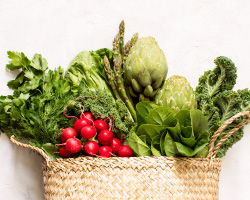
March 24, 2023—Do the foods you eat fight or promote inflammation?
For your heart's and brain's sake, you might want to know. Research has found a lower risk of heart disease and stroke among those who tend to eat a lot of anti-inflammatory foods, according to the American College of Cardiology.
Inflammation overload?
When you think of inflammation, you probably think of the redness and swelling that can occur with an infection or injury. That's a normal immune response.
A similar process can happen inside your body for reasons other than infection, according to the Academy of Nutrition and Dietetics. Over time, this inflammation might create problems in your heart and blood vessels that can lead to a heart attack or stroke.
What does this have to do with your diet? Some foods appear to promote chronic inflammation, while other foods might help lower it.
Which foods and beverages may have anti-inflammatory properties? For starters, foods with lots of antioxidants and fiber.
Some examples are:
- Green leafy vegetables, such as kale, spinach and cabbage.
- Yellow vegetables.
- Whole grains.
- Fruits.
- Coffee.
- Tea.
Some foods that may promote inflammation are:
- Refined carbs, such as sweets, white bread and other highly processed foods.
- Fried foods.
- Sodas and other sugary drinks.
- Red and processed meats.
- Organ meats.
Build a practical plate
Research into anti-inflammatory foods is ongoing. The best way to ensure that you're getting these foods (along with other needed nutrients) is to aim for a balanced and varied diet, according to the Academy.
That's a diet that includes:
- Plenty of fruits and veggies (about half your plate).
- Lean proteins.
- Monounsaturated fats for cooking (such as olive oil or canola oil).
- Low-fat or nonfat dairy.
- Whole grains.
- Fish a few times a week.
- Limited amounts of highly processed foods, added sugars, sodium, and saturated and trans fats.
Find out more about eating right in our Nutrition health topic center.
Sources
- American College of Cardiology. "Avoiding Inflammatory Foods Can Lower Heart Disease, Stroke Risk." https://www.acc.org/about-acc/press-releases/2020/11/02/19/00/avoiding-inflammatory-foods-can-lower-heart-disease-stroke-risk.
- American Society for Nutrition. "Inflammation: What Is It, and How Can My Diet and Behavior Affect It?" https://nutrition.org/inflammation-what-is-it-and-how-can-my-diet-and-behavior-affect-it/.
- EatRight.org. "Can Diet Help With Inflammation?" https://www.eatright.org/health/health-conditions/arthritis-and-inflammation/can-diet-help-with-inflammation.
- Journal of the American College of Cardiology. "Dietary Inflammatory Potential and Risk of Cardiovascular Disease Among Men and Women in the U.S." https://www.sciencedirect.com/science/article/pii/S0735109720371904?via%3Dihub.